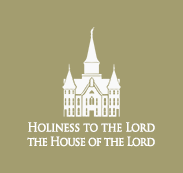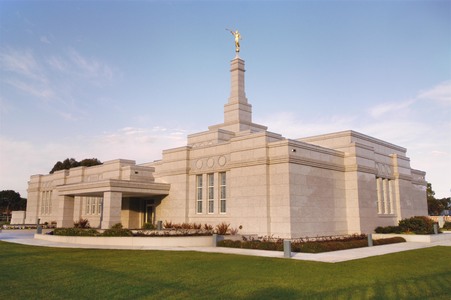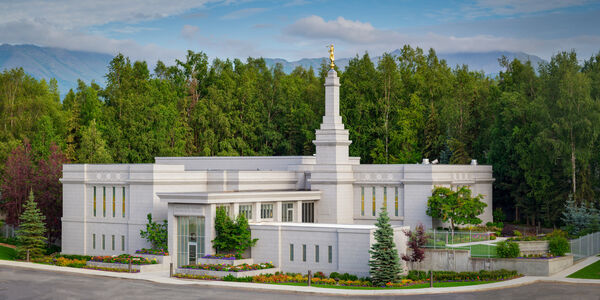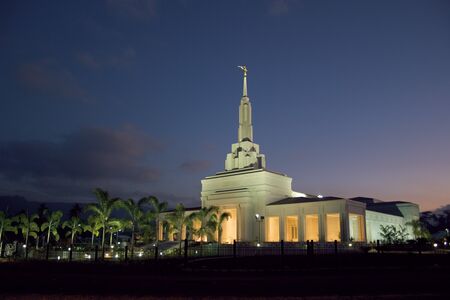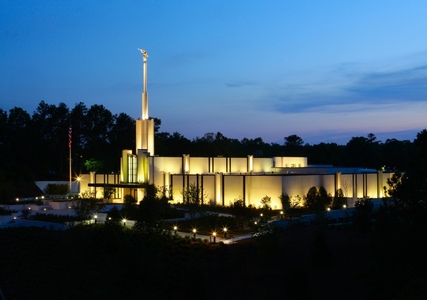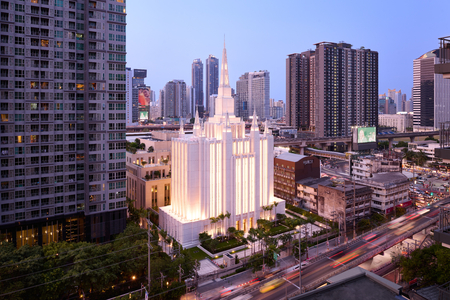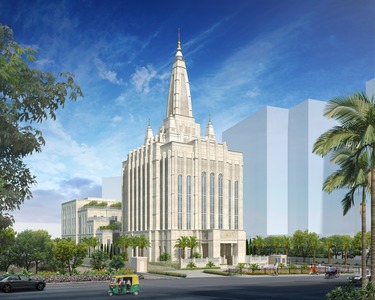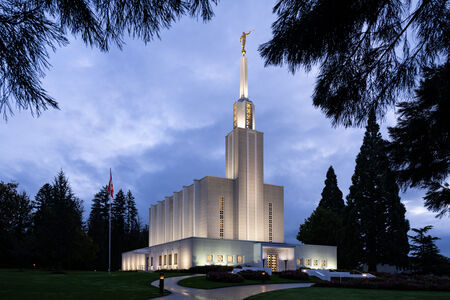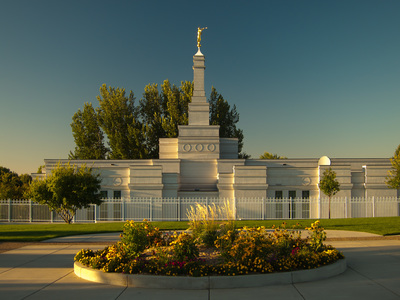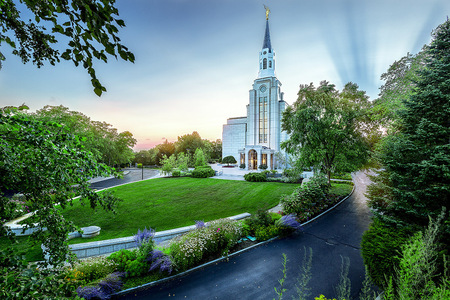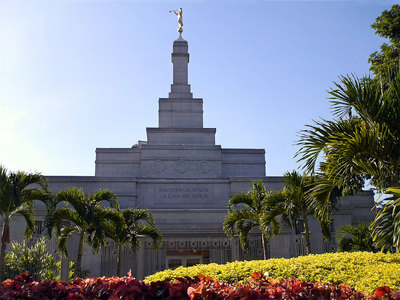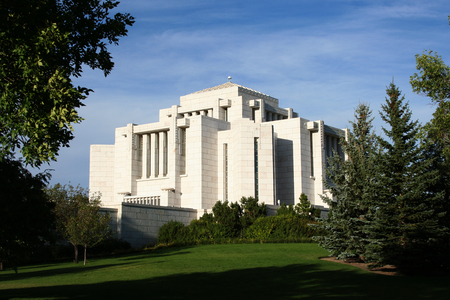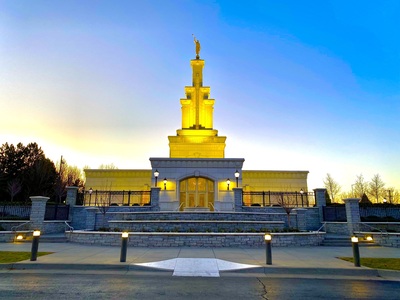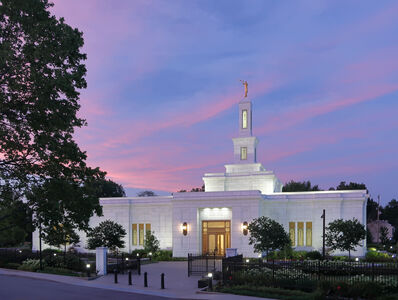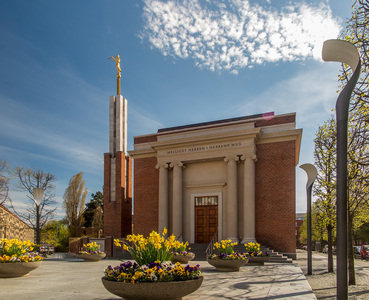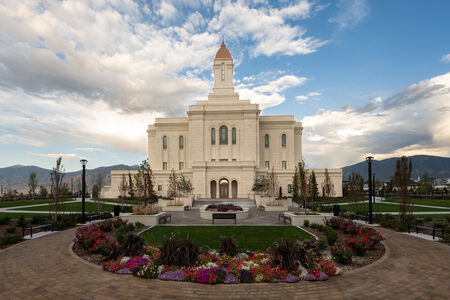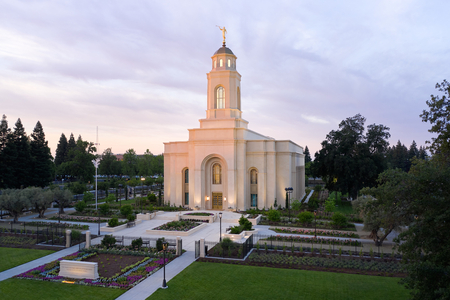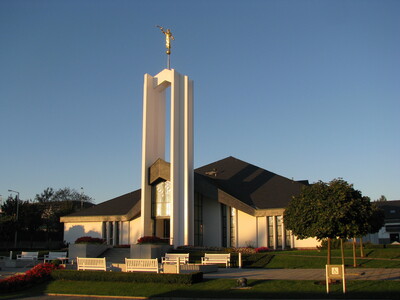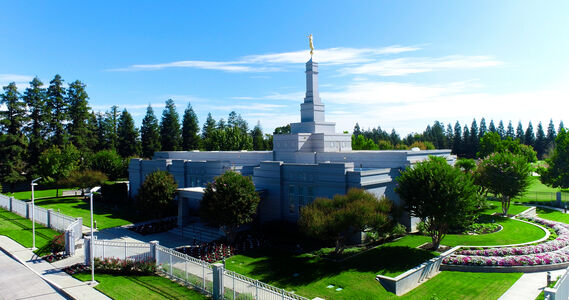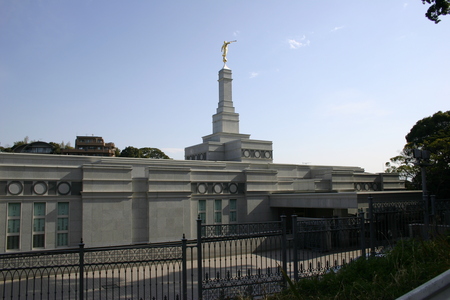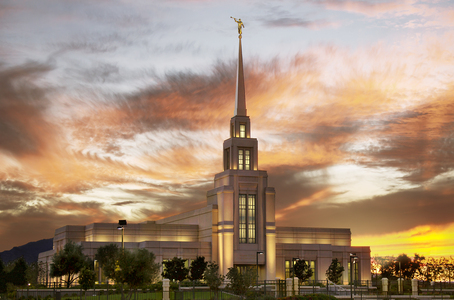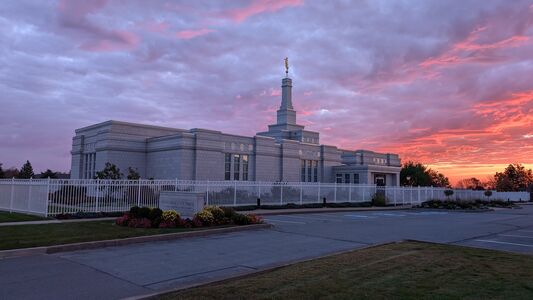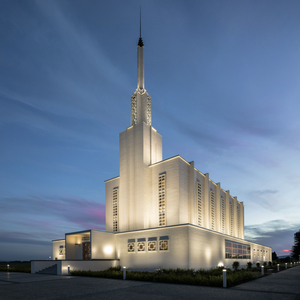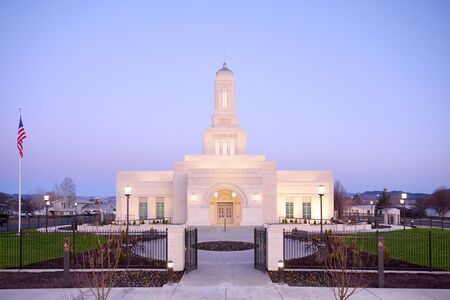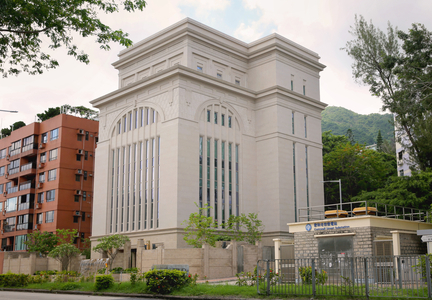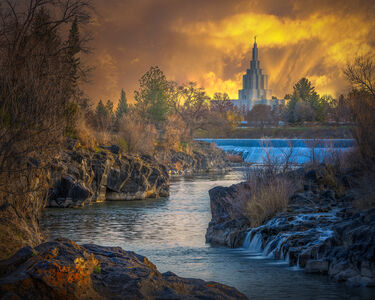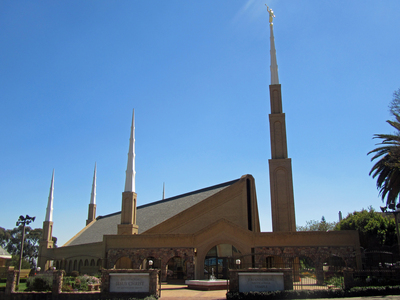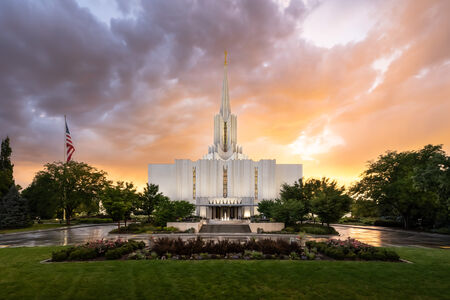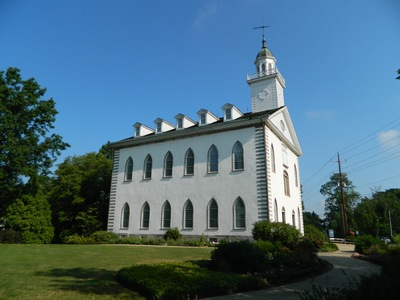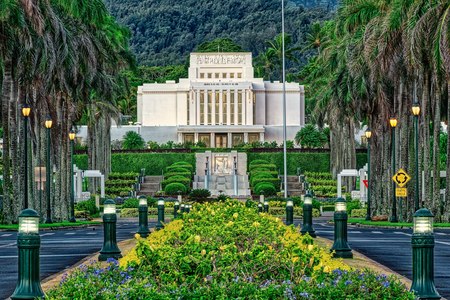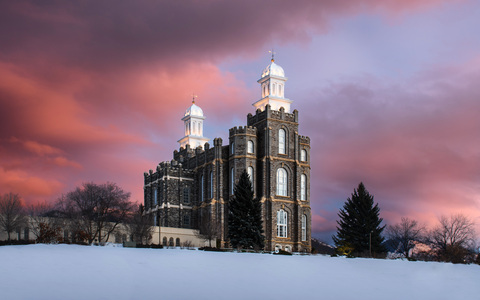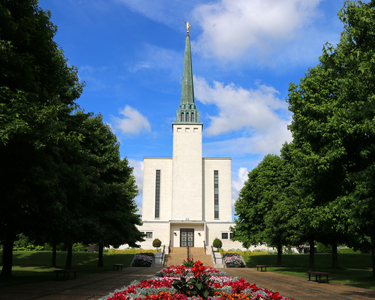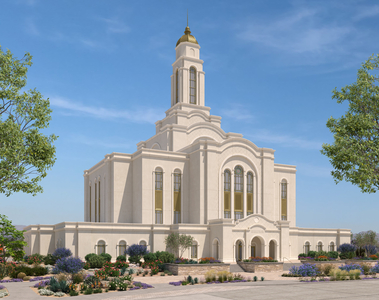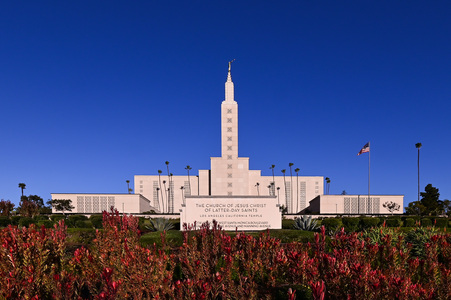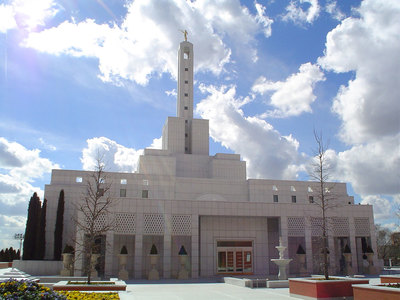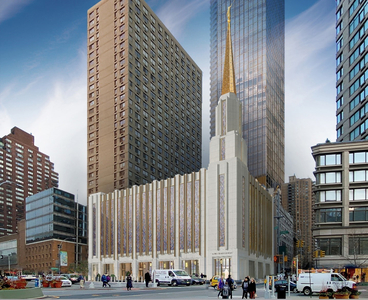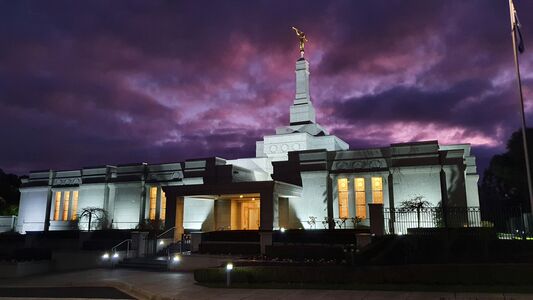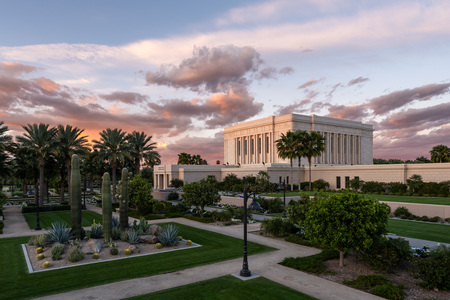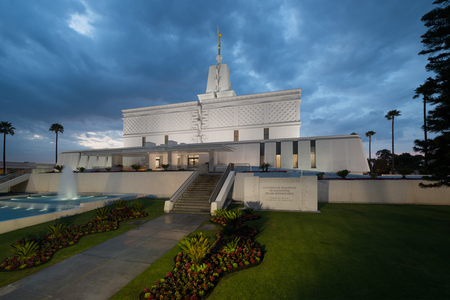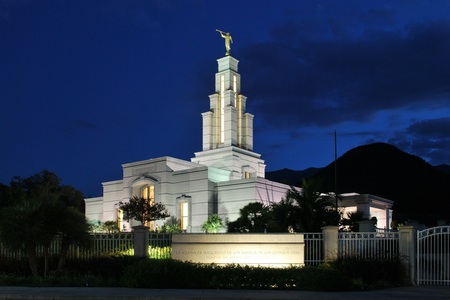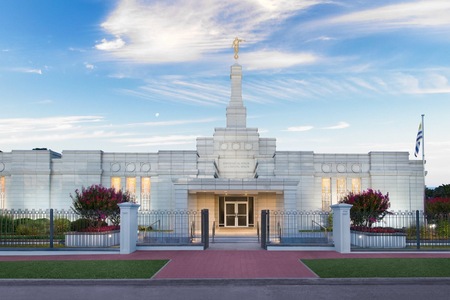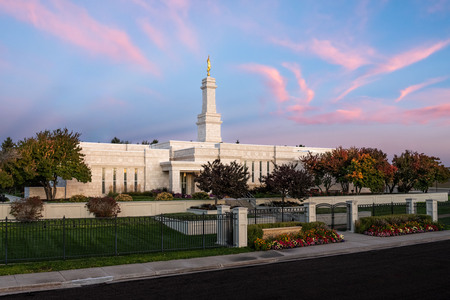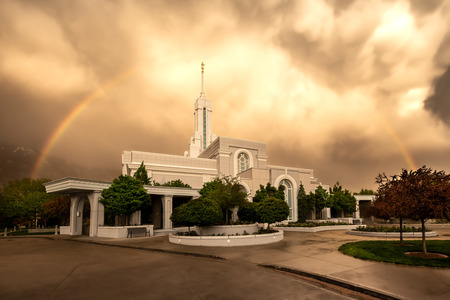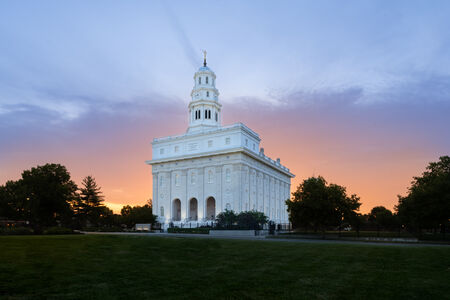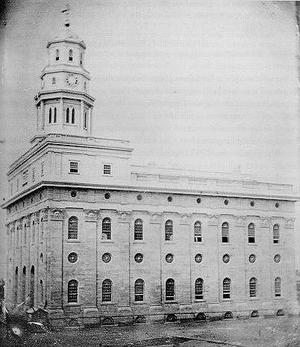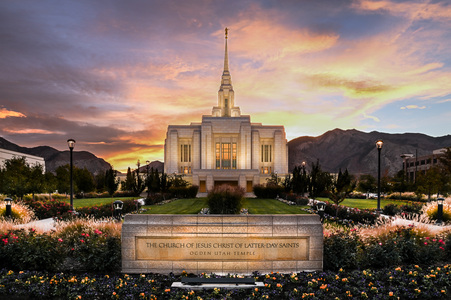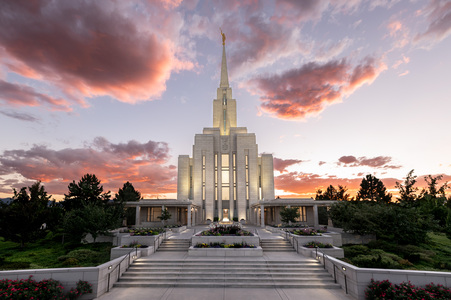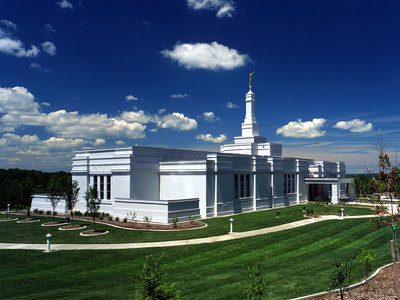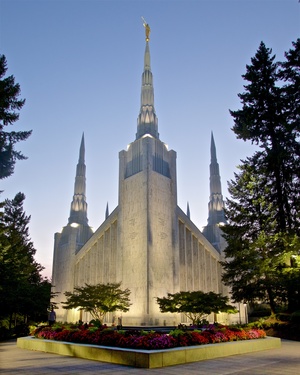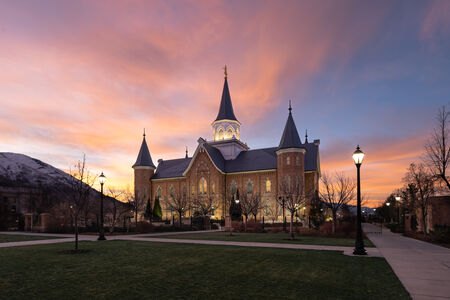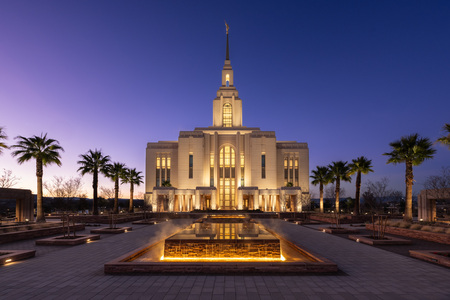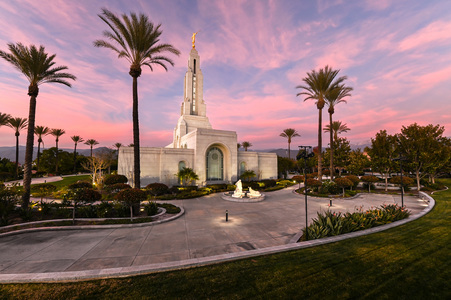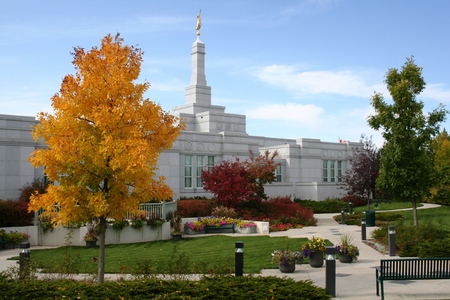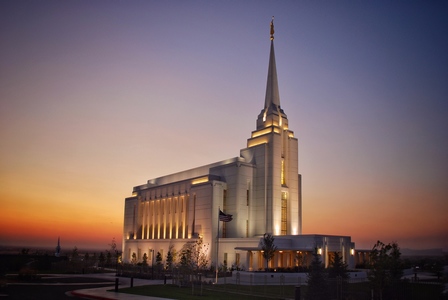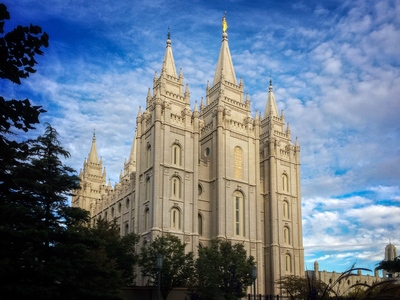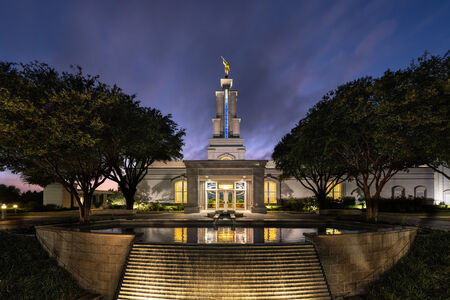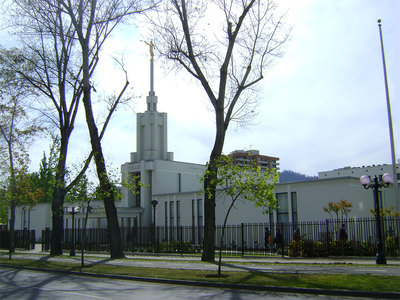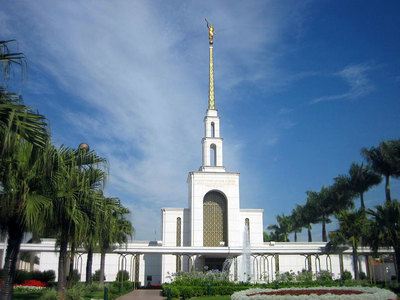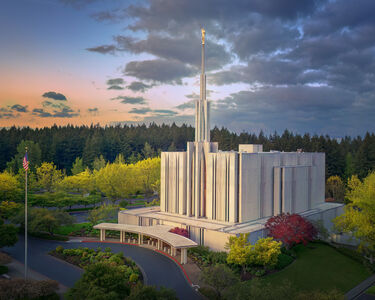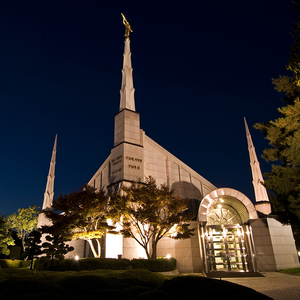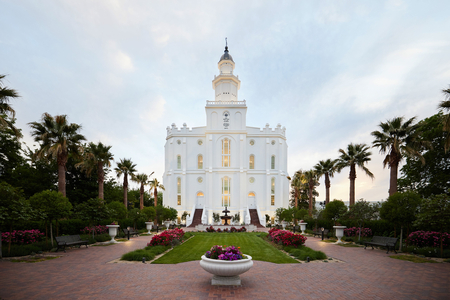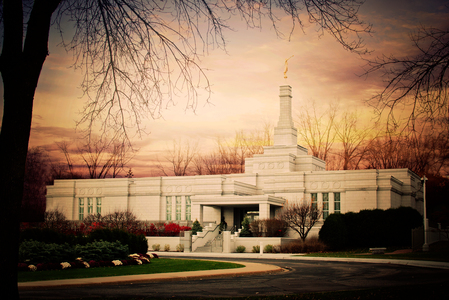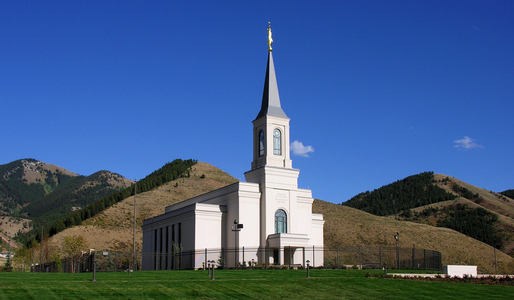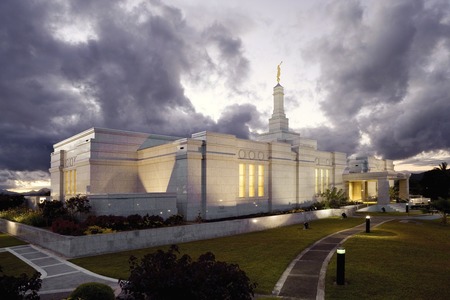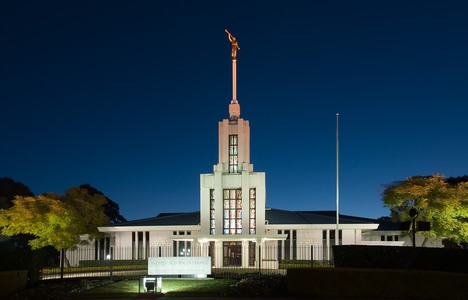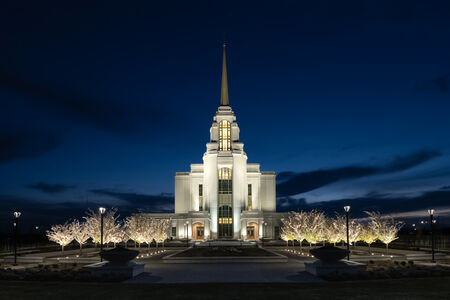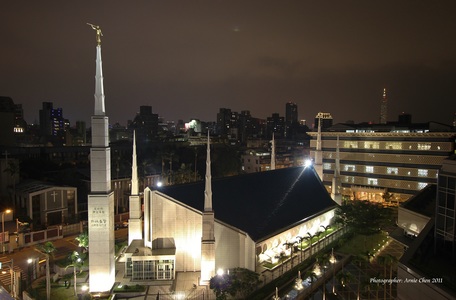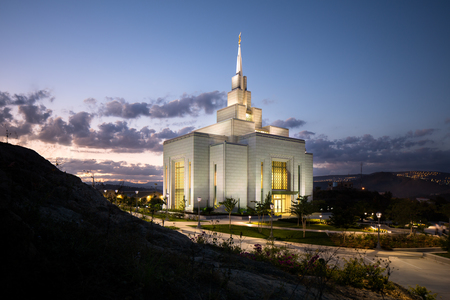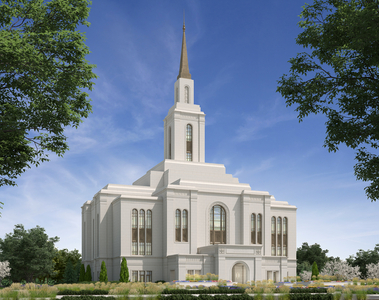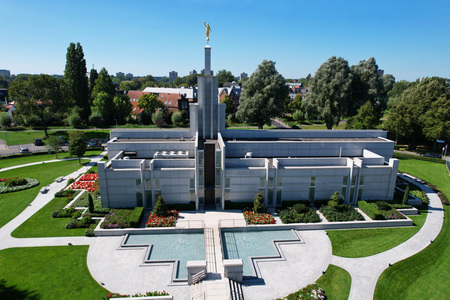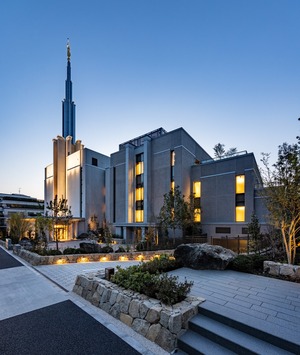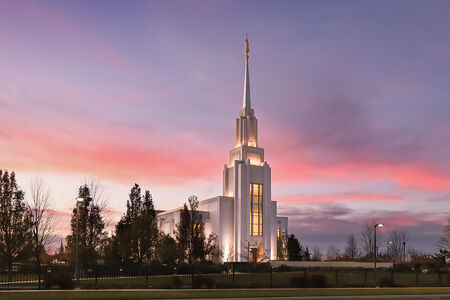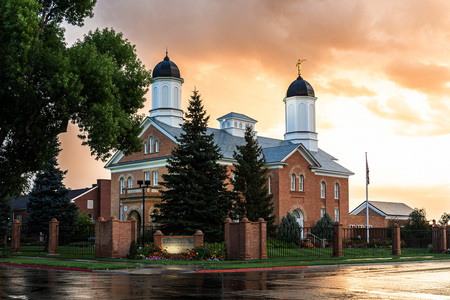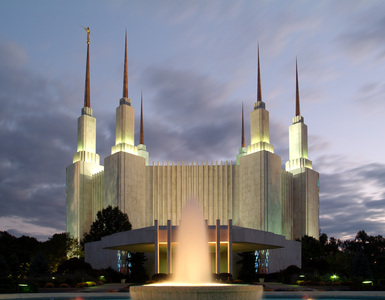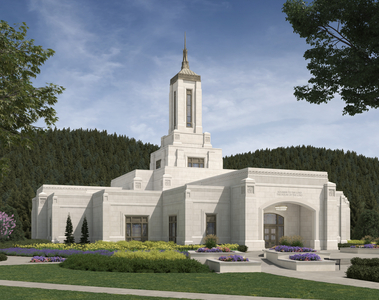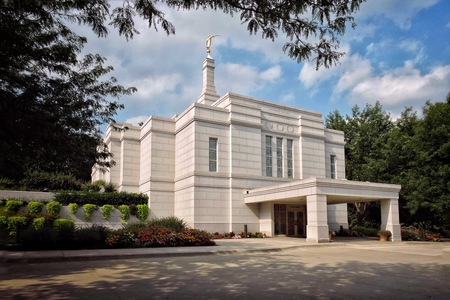Interesting Facts
Following is a compilation of interesting facts about the temples of the restored Church of Jesus Christ, which may be suitable for use as temple trivia questions.
Temple Firsts
- Through the dedication of the Salt Lake Temple, all temples had been built in the same state (or territory) as Church Headquarters: Ohio, Illinois, and Utah. The Laie Hawaii Temple was the first temple "brought to the people."
- The Cardston Alberta Temple was the first temple constructed outside of the United States (its states and territories).
- The Bern Switzerland Temple was the first temple constructed in Europe.
- The Hamilton New Zealand Temple was the first temple constructed in the Southern Hemisphere.
- The São Paulo Brazil Temple was the first temple constructed in South America.
- The Tokyo Japan Temple was the first temple constructed in Asia.
- The Johannesburg South Africa Temple was the first temple constructed in Africa.
- The first temple to be built in a nation under Communist rule was the Freiberg Germany Temple.
- The Ogden Utah Temple was the first temple dedicated in the state of Utah. (Utah gained statehood on January 4, 1896. Four temples—including the Salt Lake Temple—had already been dedicated in Utah Territory.)
- The Mesa Arizona Temple was the first temple to present ordinances in a language other than English. The ordinances were administered in Spanish in 1945.
- The Bern Switzerland Temple was the first temple to not have English as its predominant language.
- Endowments for the dead were performed for the first time in the St. George Utah Temple.
- The first temple constructed with the idea of using a film rather than live acting to present the endowment was the Bern Switzerland Temple.
- The first completed "smaller-and-remote-area" temple of the Church as conceived by President Gordon B. Hinckley was the Monticello Utah Temple.
- The Vernal Utah Temple was the first temple to be converted from an existing building.
- The Cardston Alberta Temple was the first for which the First Presidency invited architects to submit their original designs. (All previous designs had been guided by revelation.)
- Elder Boyd K. Packer dedicated the Regina Saskatchewan Temple—the first 20th century temple to be dedicated by an apostle who was not a member of the First Presidency.
- The St. Paul Minnesota Temple was the first temple dedicated in the year 2000.
- On November 14, 1999, the Halifax Nova Scotia Temple and Regina Saskatchewan Temple became the first two temples dedicated on the same day.
- The Logan Utah Temple was the first temple built with a progressive-room scheme for presentation of the endowment.
- The Jordan River Utah Temple was the first temple whose construction (and maintenance costs for many years) were funded entirely by monetary donations from local members. The temple site was also a gift to the Church.
- The first city in the world to have two Latter-day Saint temples was South Jordan, Utah, where the Jordan River Utah Temple and the Oquirrh Mountain Utah Temple are located.
- The first state outside of Utah to have more than one dedicated temple was California.
- The Syracuse Utah Temple was the first temple constructed with two baptistries.
- The Helena Montana Temple was the first temple built using modular construction.
Angel Moroni Statues
- Not all temples have an east-facing angel Moroni statue. In fact, the angels on several temples face nearly due west because of lot orientation or the placement of spires.
- The Nauvoo Temple was the first to have an angel (though not identified as Moroni), and it is the only temple to have a horizontal or flying angel (which functioned as a weathervane). The angel was inspired by Revelations 14:6, which says, "And I saw another angel fly in the midst of heaven, having the everlasting gospel to preach unto them that dwell on the earth, and to every nation, and kindred, and tongue, and people."
- The first temple to have a standing angel Moroni was the Salt Lake Temple.
- The Atlanta Georgia Temple (1983) was originally designed with no spire or angel Moroni, but the Church revised its plans, and nearly every temple built for the next 40 years featured an angel Moroni statue.
- Several temples received angels after their dedications. The first was the Idaho Falls Idaho Temple, which had an angel Moroni statue added in 1983, almost 40 years after its dedication. As a part of renovation projects in the 2000s, the Church added angel Moroni statues to several of the originally statueless temples including the Freiberg Germany Temple (2001), Ogden Utah Temple (2002), Provo Utah Temple (2003), São Paulo Brazil Temple (2003), Tokyo Japan Temple (2004), Bern Switzerland Temple (2005), and London England Temple (2008). A spire and angel Moroni statue were added to the Manhattan New York Temple (2004) four months after its dedication. They were not part of the original design because the temple was built inside of an existing Church-owned building.
- Both the Sydney Australia Temple and Boston Massachusetts Temple were dedicated without their angel Moroni statues due to pending litigation. In both cases, rulings allowed for the angels to be installed about a year after their respective dedications.
- After Russell M. Nelson became president of the Church in 2018, a shift in focus led to the elimination of the angel Moroni as a standard design feature on Latter-day Saint temples. There are now 127 temples that do not have an angel Moroni statue.
- The Hong Kong China Temple (1996) was the first temple to have an angel Moroni statue permanently removed as part of a renovation (2022).
- The Monticello Utah Temple is the only temple to have had a white angel Moroni. White enamel-covered fiberglass statues were to decorate the "smaller and remote-area" temples as conceived by President Gordon B. Hinckley, but the Monticello statue proved too difficult to see, especially in cloudy weather. It was replaced about a year later by a larger, traditional gold-leafed statue, which has remained the standard.
- The Anchorage Alaska Temple, Bismarck North Dakota Temple, Columbus Ohio Temple, and Caracas Venezuela Temple feature angel Moroni statues holding a scroll—a design originally created for use on the "smaller and remote-area" temples as conceived by President Gordon B. Hinckley.
- Only five temples feature an angel Moroni statue holding the gold plates. They are the Los Angeles California Temple, Washington D.C. Temple, Seattle Washington Temple, Jordan River Utah Temple, and Mexico City Mexico Temple.
- In the early 1930s, a replica of the Salt Lake Temple angel Moroni was fashioned by Torleif Knaphus for the Washington D.C. Chapel. The statue was removed in 1976 when the chapel was sold (currently owned by the Unification Church) and is now on display in the Museum of Church History and Art. It is owned by the LDS Motion Picture Studio and was used in the filming of Mountain of the Lord. Castings of this statue have since been made and installed atop the Atlanta Georgia Temple (since replaced), Idaho Falls Idaho Temple, and Boston Massachusetts Temple.
- The Nauvoo Illinois Temple, The Hague Netherlands Temple, and Boston Massachusetts Temple participated in a tri-temple setting of the angel Moroni on the 178th anniversary of the day that Moroni first appeared to the Prophet Joseph Smith.
- The trumpets of the angel Moroni statues on the Santiago Chile Temple, Tokyo Japan Temple, Apia Samoa Temple, and Salt Lake Temple have been shaken out of Moroni's grasp during earthquakes.
- Due to its height and conductivity, it is not unheard of for an angel Moroni statue to be struck by lightning during a thunderstorm just like a lightning rod.
Design and Construction
- The St. George Utah Temple originally followed the design of the Nauvoo Temple and Kirtland Temple, featuring an assembly hall and an instruction hall partitioned for presenting the endowment.
- The Ogden Utah Temple, Provo Utah Temple, Jordan River Utah Temple, and Washington D.C. Temple were built with six endowment rooms to accommodate high-capacity use by the Saints.
- A large priesthood assembly room was standard in all temples until the Salt Lake Temple was dedicated. Since then, very few temples have included such a room, representing a design transition that focused more on ordinance work and less on general assembly.
- Shortly after Brigham Young's death, the original "squatty" tower of the St. George Utah Temple, which he disliked, was struck by lightning and burned to its base. The tower was rebuilt taller and with a more elegant shape.
- The Salt Lake Temple took 40 years to build. It was dedicated 46 years after its announcement—the same length of time taken to erect the ancient Jerusalem Temple (John 2:20).
- The Nauvoo Temple and Apia Samoa Temple are the only two modern-day temples to have been destroyed, both by fire. The buildings were reconstructed.
- The Vernal Utah Temple, Copenhagen Denmark Temple, Manhattan New York Temple, and Provo City Center Temple are all adaptations of existing Church-owned buildings.
- Every art glass window in the San Antonio Texas Temple is a custom piece created by Utah artist Tom Holdman.
- Two groundbreakings were held in two different locations over two years apart for the Tegucigalpa Honduras Temple because opposition from the community to the originally selected location after groundbreaking led the Church to choose another site.
- The Manhattan New York Temple is virtually a building within a building, which is completely soundproofed from the hustle and bustle of the city.
Dimensions
- The Washington D.C. Temple's 288-foot spire makes it the tallest of all Latter-day Saint temples.
- Plans for the Los Angeles California Temple were postponed for World War II and later revised to make it the largest temple built since the Salt Lake Temple. (The Salt Lake Temple has since been enlarged, making it the largest temple in the world.)
- The Mexico City Mexico Temple is the largest outside of the United States.
- During a major renovation of the Salt Lake Temple, it was announced that a second baptistry would be added, making it the first temple in operation to have a second baptistry added.
- With 23 sealing rooms, the Salt Lake Temple has more sealing rooms than any other temple.
Dedications
- The year 2000 saw 34 dedications, the most temple dedications in one year.
- Since the dedication of the St. George Utah Temple, the 1900s and 1930s are the only two decades void of temple dedications.
- Dedications of the first 50 temples spanned 120 years. The next 50 dedications spanned 3 years.
- The Monterrey Mexico Temple was the second announced to be built in Mexico but was the twelfth to be dedicated in that country due to long delays in neighborhood negotiations, which resulted in relocation of the temple site within the city.
- President Joseph F. Smith died just one year before the dedication of the Laie Hawaii Temple where he had labored as a very young missionary.
- The Nauvoo Illinois Temple was dedicated on the 158th anniversary of the martyrdom of Joseph and Hyrum Smith.
- The St. George Utah Temple, Salt Lake Temple, and Palmyra New York Temple are the three temples dedicated on April 6.
- President Gordon B. Hinckley dedicated 4 temples in just one week, June 11–18, 2000: Fukuoka Japan Temple, Adelaide Australia Temple, Melbourne Australia Temple, and Suva Fiji Temple.
- The announced date of dedication had to be withdrawn for the Montevideo Uruguay Temple due to a strike in the country that greatly delayed completion of the building.
- Joseph Fielding Smith wrote the dedicatory prayer for the Provo Utah Temple, but it was read by Harold B. Lee.
- The dedicatory services of the Mesa Arizona Temple were broadcast over the radio.
- Because of their historical significance, the dedicatory services of the Palmyra New York Temple, Winter Quarters Nebraska Temple, and Nauvoo Illinois Temple were broadcast internationally via encrypted satellite. This system has been used for numerous dedications since.
- President Gordon B. Hinckley is the most prolific temple dedicator in history, presiding over the dedication of 85 temples and the rededication of 13 temples, 5 of which he had not originally dedicated for a total of 90 temples.
Locations
- All Spanish-speaking nations in South America have at least one temple.
- The Redlands California Temple stands on a parcel of the original Mormon landholdings purchased in October 1851 by Elders Amasa Lyman and Charles C. Rich.
- An old Elizabethan manor, which was converted for a time for use as a missionary training center for the European saints, sits on the site of the London England Temple.
- No country outside the United States had more than one temple until 1990 when Canada's second temple was dedicated in Toronto, and East and West Germany reunited, placing its two temples in Freiberg (1985) and Frankfurt (1987) under one nation.
- Located off Highway 99, the Fresno California Temple—announced in 1999—was the 99th announced temple.
- The land where the Portland Oregon Temple stands was originally purchased to build a Church junior college.
- The Mount Timpanogos Utah Temple is built on the site of a former Church welfare farm.
- The Palmyra New York Temple is located on the east end of the original 100-acre Smith Family Farm, which borders the Sacred Grove—a theme carried throughout the temple.
- The location of the Madrid Spain Temple was announced at the groundbreaking of the Mount Timpanogos Utah Temple.
- Temples are adjacent to all Church-owned institutions of higher education including LDS Business College (Salt Lake Temple), Brigham Young University (Provo Utah Temple), Brigham Young University–Idaho (Rexburg Idaho Temple), and Brigham Young University–Hawaii (Laie Hawaii Temple).
- The Rexburg Idaho Temple and the Teton River Idaho Temple are located three-and-a-half miles apart on the same street (South 2nd East) in Rexburg, Idaho.
- Real estate is limited and expensive in Asia, leading to an interesting pattern followed by the church of razing mission homes, mission offices, or Church office buildings to make way for temples including the Tokyo Japan Temple, Taipei Taiwan Temple, Seoul Korea Temple, Hong Kong China Temple, Fukuoka Japan Temple, Bangkok Thailand Temple, and Bengaluru India Temple.
- The Church purchased an operating nine-hole golf course (which had announced its intentions to close) as the site for the Twin Falls Idaho Temple. Because the purchase included much more land than needed, the balance of the property was developed into residential lots with Latter-day Saint-inspired street names.
- Thirteen temples do not bear the name of the major city or neighborhood where they are located including the Jordan River Utah Temple (South Jordan), Mount Timpanogos Utah Temple (American Fork), Winter Quarters Nebraska Temple (Omaha), Columbia River Washington Temple (Richland/Kennewick/Pasco), Oquirrh Mountain Utah Temple (South Jordan), The Gila Valley Arizona Temple (Safford/Thatcher/Pima), the Star Valley Wyoming Temple (Afton), the Feather River California Temple (Yuba City), the Red Cliffs Utah Temple (St. George), the Deseret Peak Utah Temple (Tooele), the Willamette Valley Oregon Temple (Eugene), the Lone Mountain Nevada Temple (Las Vegas), and the Teton River Idaho Temple (Rexburg).
- The cities of Provo, Utah; Lima, Peru; Manila, Philippines; São Paulo, Brazil; and Mexico City, Mexico; are the only five cities in the world to each have two or more temples and a missionary training center within their metropolitan areas.
